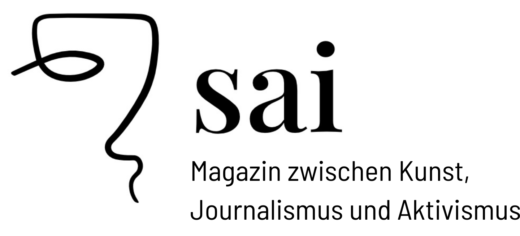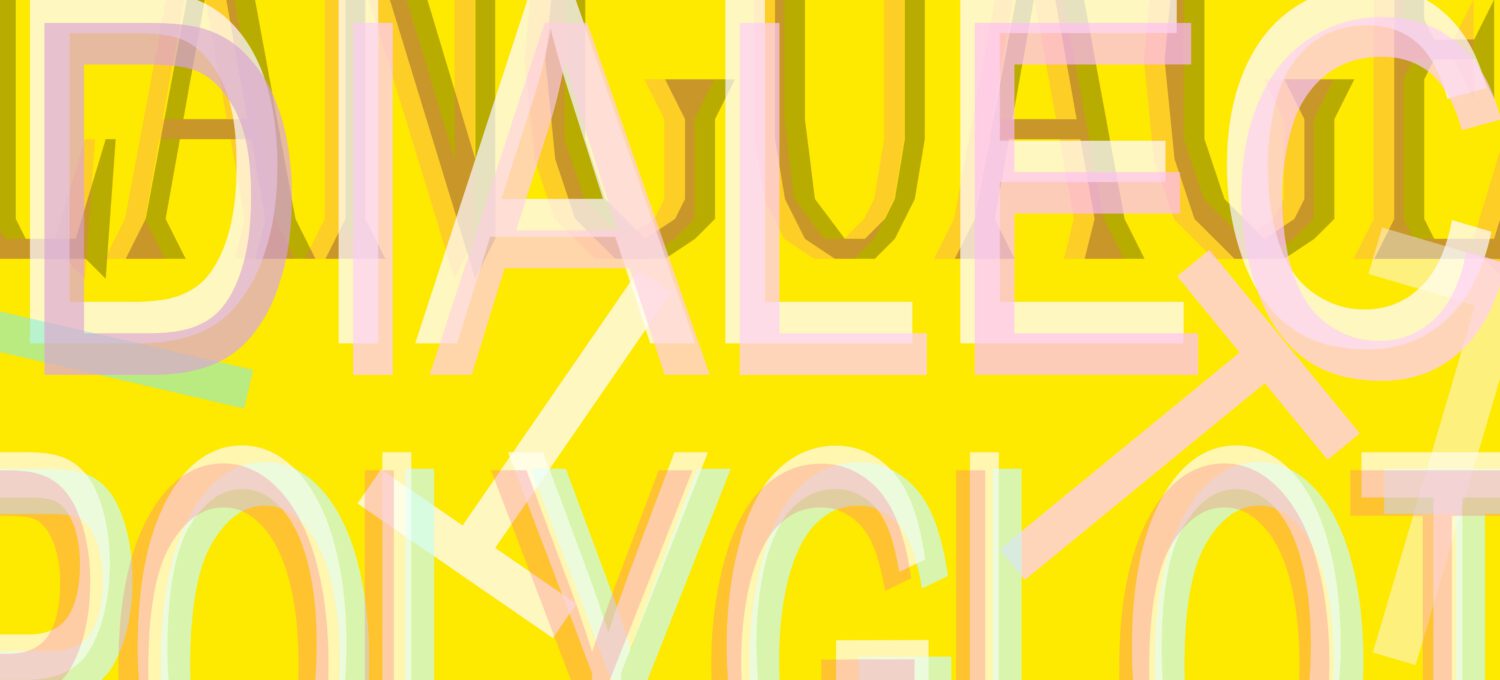von Mathis Gilsbach | Photography: ©Lindsay Williams
“I’m going to Papua New Guinea to find this language from this small-town library!”
Dobuan is a language spoken by about 100,000 people on an island off the coast of Papua New-Guinea. It is a small language, rather unknown outside perhaps of linguistic circles. Yet, in a small-town library in the middle of England, language enthusiast Lindsay Williams was quite surprised to stumble upon a little, typewritten booklet with a faded pink cover. The title was ‘Dobuan Grammar’.
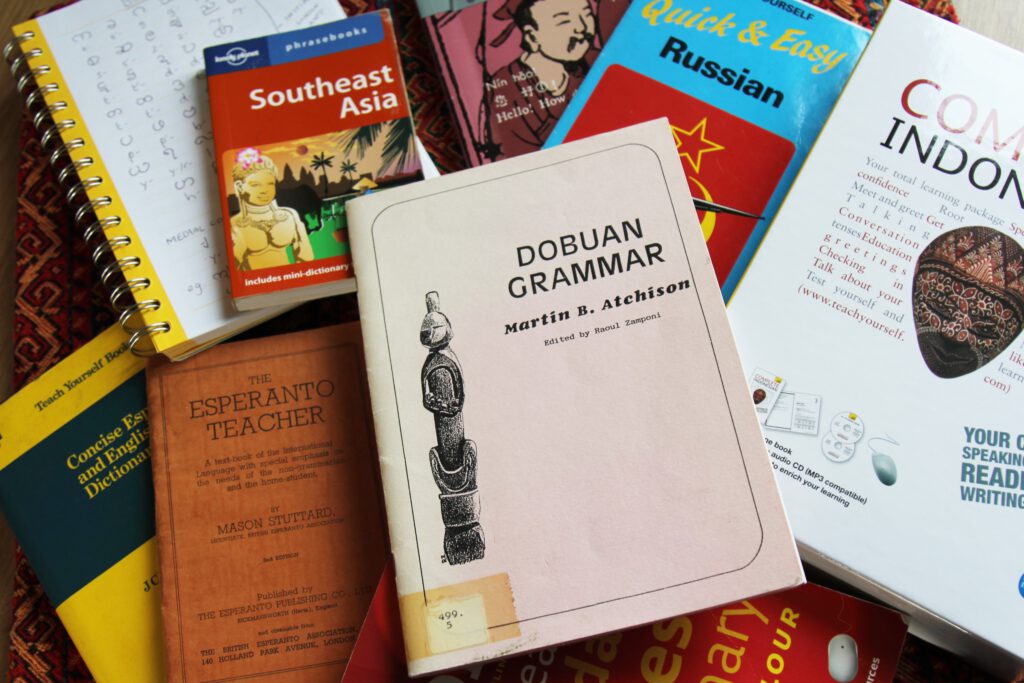
Lindsay Williams is a multilingual, a polyglot, a YouTuber, a language teacher, and educator from the United Kingdom. Although she would probably contest the first two ascriptions of polyglot and multilingual. She speaks over thirteen languages or as she puts it: “I usually say that I studied thirteen languages.”, meaning to highlight that she is by no means completely fluent in all of them.
Speaking on Skype, a lot of my interview with Williams revolves around words, the meaning of words, what they mean for our identity, and how we describe ourselves and others. She says that she struggles with the term polyglot. Many others describe her as such, but for her feeling that title is too big to claim it herself. The term multilingual does not suit her, either. Generally, it describes people that have grown up in multiple languages. She has been raised in English only. This whole search for words strikes her as quite funny.
“You know, what I enjoy most of all are words and language and then I get really hung up on finding a word to describe myself. It’s quite silly, really.”
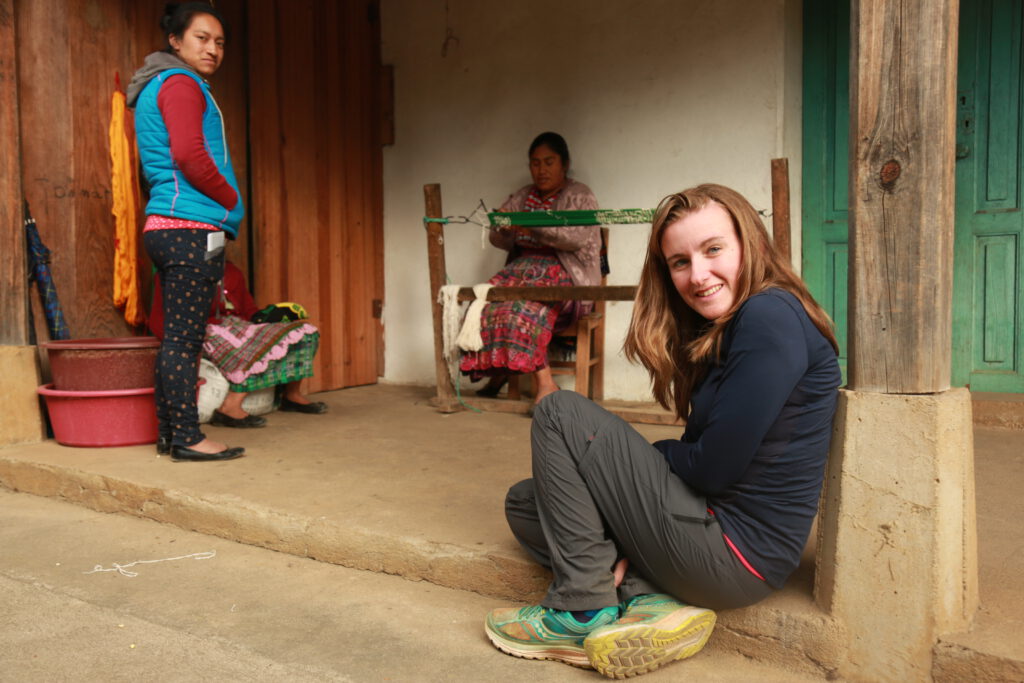
Williams really has a very humble way of speaking about her achievements. She always focuses on the topic and not on herself, providing context to explain how she came to speak this many languages. This is reflected in her YouTube channel – Lindsay Does Languages – which gives surprisingly little information about her as a person, instead it is all about her passions, language, and language learning.
She has a long running series called ‘Nine reasons to learn a language’. It presents different languages such as French, Hawaiian, or Welsh and why people should learn them. Other videos revolve around methods and materials for language learning. Finally, she has a series of videos and podcasts, called ‘Language Stories’, which explores lesser known languages around the globe.
‘Language Stories’ was sparked by the Dobuan language and the little, old booklet from the library.
Initially, the plan was to shoot a longer travel documentary about the way to Papua New Guinea, to find the speakers of Dobuan. It turned into so much more. Currently, Williams and her husband prepare to shoot the third season.
She tells me she has a playlist titled ‘Probably why I learn languages’. It includes many 90’s songs such as the Spice Girls‘ ‘Spice up your life’ where they shout the Spanish word ‘Arriba’ or Ricky Martin’s ‘Living la vida loca’. Those “little nuggets” of other languages first stoked her curiosity. She also recalls driving around Italy with her parents and saying to them – here she raises her voice as if to re-enact the scene – “you know, all the roads, all the names on the road signs, they all end in vowels.” She remarks herself, “What a thing to say for a ten-year-old.”
She also recalls reading the different languages on packaging of toothpaste or shampoo.
“I would do that even now, in fact,” she says with a laugh.
From these early signs of her language affinity it was a gradual process from passion to profession. In school Williams almost was put off of language learning because her French teacher did not encourage her to learn more and study beyond what was asked in class. But she got really hooked on languages when she started Spanish a year later. In fact, she had only picked French to be able to choose Spanish in her next term.
She says that without Spanish she would have probably not grown as passionate about languages as she did.
“It was really Spanish that saved me.”
She got the chance to change to a high school that specialized in languages. They not only taught different languages, they celebrated them with language days and cultural activities. Williams felt right at home. She continued studying French and Spanish and got into contact with the whole diversity of languages, such as German and Japanese, that the school had to offer.
During her studies of Italian, Chinese, German, French, and Spanish at Open University she started working as a language tutor, initially for French and Spanish and later for English as well. That was the origin of Lindsay Does Languages. Initially, she took all kinds of jobs on location such as teaching English to workers of a garlic bread factory. Then she moved her business online. First by teaching via video calls, adding a blog and YouTube channel later on.
Along the way she picked up knowledge in a number of other languages including Indonesian, Bulgarian, and Guarani. She appears very goal-oriented, when she decides on a project, she will spend significant time and energy to pursue it, just as her dream of learning Spanish in high school, even choosing another language, French, just so she could get to Spanish.
Currently she focuses on picking up some knowledge of Welsh and Manx, both Celtic languages spoken in Britain.
While Dobuan was the initial spark for creating ‘Language Stories’, Williams never made it all the way to Papua New Guinea. While traveling in the Americas for holiday and for a conference of language learners, she had the idea to expand it into a series about different languages instead of one long documentary. She started with a series from Latin America and continued in season two in South Asia. Season three will be about the British Isles. Somewhat ironically the initial spark of Dobuan and Papua New-Guinea fell of the list. She would like to go there some day but does not have specific plans to do so.
The project is all about exploring stories around lesser known languages, their culture and history and their meaning for the communities they are spoken in.
In Malaysia and Singapore for example, she spoke to members of the Kristang minority who work on preserving their heritage language. Kristang – also know as Malaccan Creole Portuguese – is a language descending from Portuguese with influences of Malay, Dutch, Chinese, and other languages. With only about 2000 speakers left, it is considered as severely endangered. But Williams video and podcast show that the drive to preserve and revive the language is alive and kicking. She hopes that her work can play a small part in supporting this effort.
The language database Ethnologue records 7117 known living languages, 2926 of which are considered endangered. This happens when the users of the language stop teaching it to their children in favour of a more dominant language. If no new speakers of the language grow up, it will eventually die and with it a rich world of words, culture, and a way of thinking about the world. The death of a language in many ways marks the end of a specific identity.
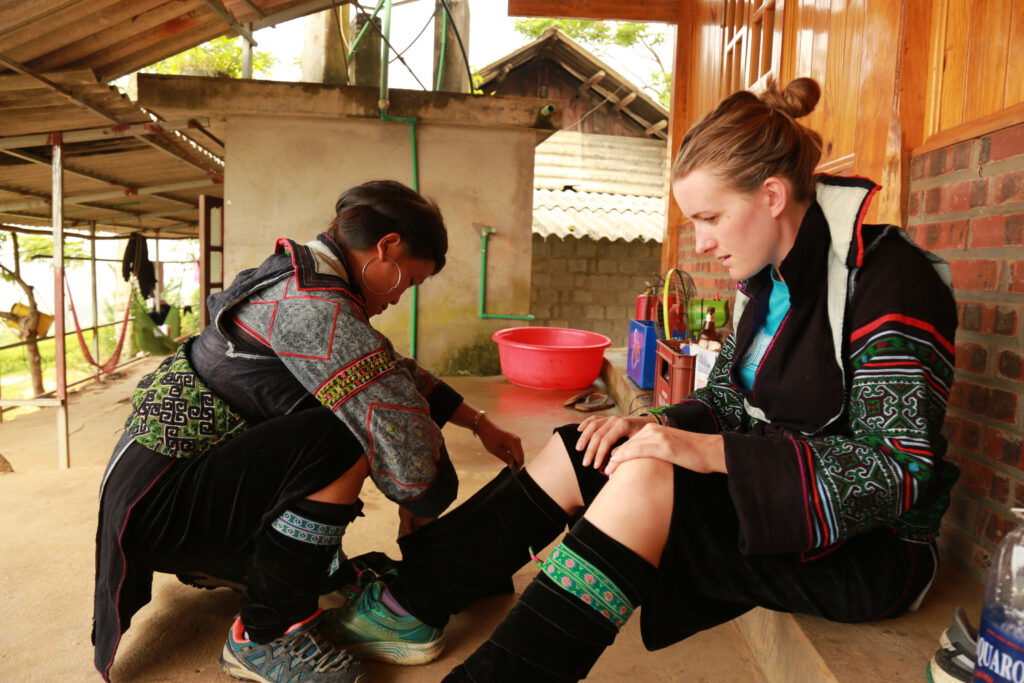
We touch on questions of identity multiple times during the interview. Not only does Williams wonder whether to see herself as multilingual, polyglot, or something different. Cultural identity is another aspect. Engaging with the Kristang community made her realize how deeply language is interwoven with identity.
Asked about her own identity in relation to language, she pauses for a moment.
“I don’t think I have really thought about my own identity before Brexit.” After the vote she says, she felt a sudden need to redefine her identity in relation to her country of birth.
“Yes, I’m English, Yes, I’m British, Yes, half-Scottish. Yes, I’m European. But in which order?”
She is still working on this process of reflection. It was part of the reason she decided to explore the linguistic diversity of her own country. ‘Language Stories’ season three will focus on the UK. To answer Williams own question: “What is my own identity, what is this country that I thought I knew?“ Instead of faraway Dobuan she will now focus on learning more about languages such as Welsh, Scottish Gaelic, or Manx.
The whole time as she is talking about the making of ‘Language Stories’, she is visibly passionate, telling me about the people she met and the stories she found. She talks faster and jumps from one country to the next. From a Mayan language rapper she takes me to a centre for Vietnamese sign language to a guy in Laos that built a school in his backyard. With all her work, on YouTube, as a teacher and language educator she hopes to share her passion and to inspire people to learn more about the diversity of the world of languages.
“If I find this interesting, then there is going to be someone else that is going to be intrigued.”
And indeed, 35,300 subscribers and over 3,200,000 views on her YouTube channel show a strong interest in her perspective on the languages of the world.
Does she ever get bored of languages? Starting again and again?
It is more the intermediate part of learning that is tedious for Lindsay, starting again and again seems to be almost a puzzle for her to try new learning materials and methods, to analyse what worked with the previous language and what might work with this language. And often she tends to start a new project once she hits the middle stage. This also has to do with the sheer amount of languages in the world.
“I feel like I don’t want to miss any out, I want to do the planet justice.”
